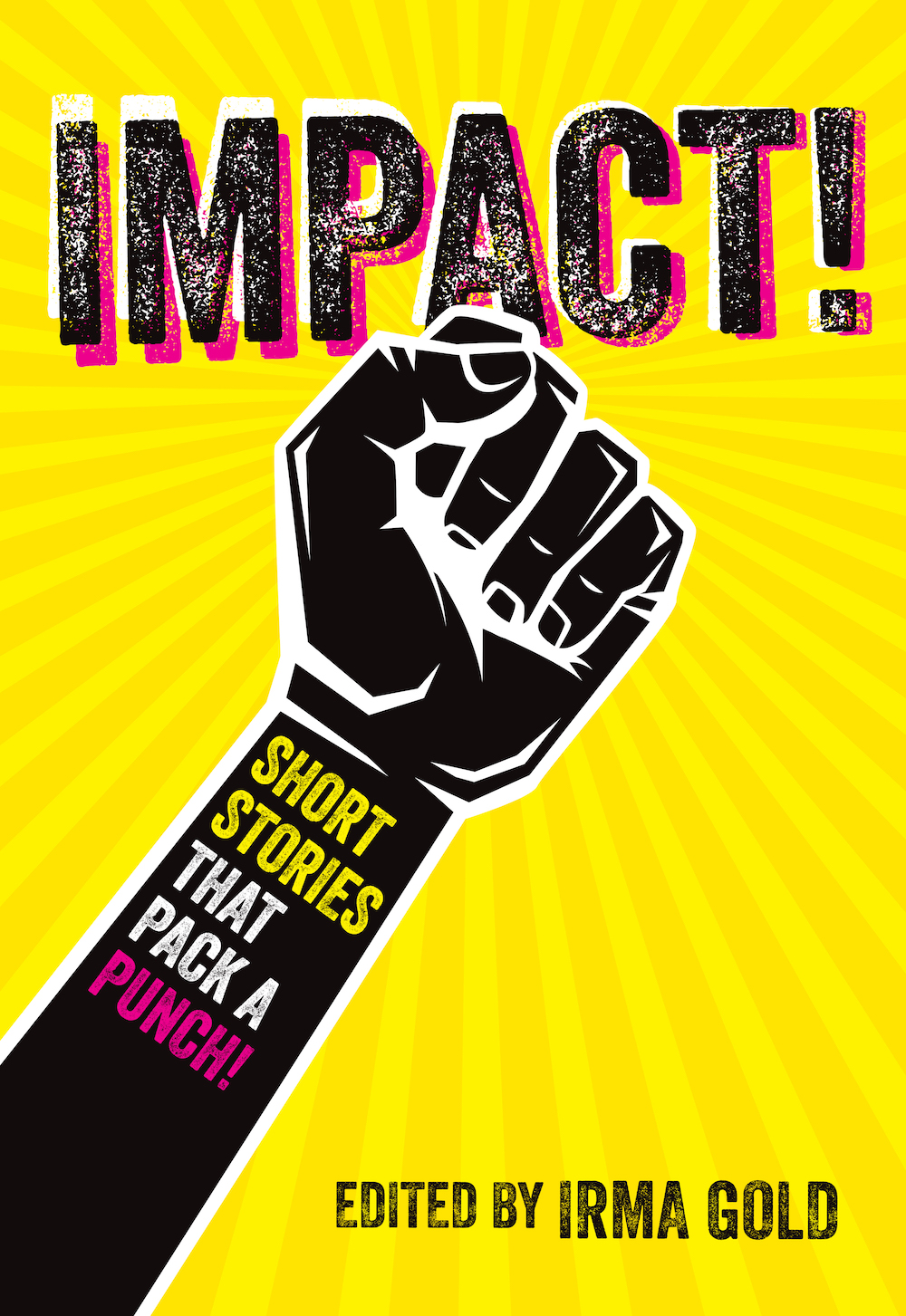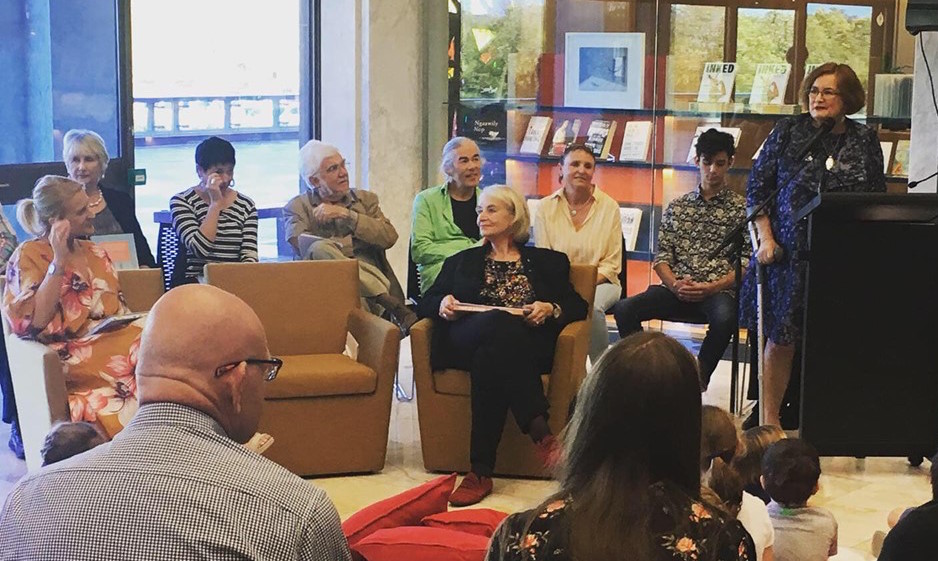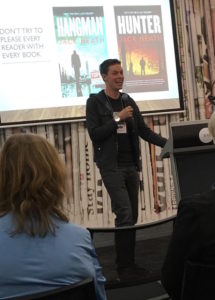…is much more fun than four weddings and a funeral.
The festival was the annual Flash Fiction Weekend, aimed at writers wanting to develop and hone their craft, held in the beautiful East Hotel. I had the pleasure of convening a panel on the writing process with superstars Graeme Simsion, Karen Viggers, Jack Heath and Susanne Gervay. I wish I could give you a sense of what we discussed but when I’m on a panel it’s always a bit of a blur afterwards, even when I’m the one asking the questions! So instead I give you writer Amanda McLeod via Twitter: ‘This panel was the business. I have many, many notes.’

I also ran my workshop on editing flash fiction and was thrilled when one participant told the marvellous organiser, Suzanne Kiraly, that my workshop was worth the price of the festival ticket alone. That kind of feedback is always happy-making. (Thanks John!)
There were lots of short keynotes and I enjoyed them all. Graeme Simsion of Rosie Project fame was up first. He spoke about how writers need to devote as much time to learning their craft as a neurosurgeon would to learning theirs. What’s more ‘there are more jobs for neurosurgeons than there are for writers’, he noted. Graeme is a keen plotter and encourages all emerging writers to carefully outline their plot before beginning to write.
Susanne Gervay, on the other hand, is a devoted pantser, writing by ‘the seat of her pants’. ‘I can’t do it any other way,’ she said. In her keynote she spoke from the heart about her writing journey and her goal to ‘empower the disempowered’. This goal drives all her books for children. Susanne is one of those rare speakers who reguarly makes me laugh and cry. No easy feat. I couldn’t agree more with her final advice: ‘You must write something of value.’
Despite functioning on next to no sleep courtesy of his two-week-old baby, Jack Heath was as engaging as ever, discussing his Hangman series, featuring a cannibal detective. Ten years ago Hangman was rejected by publishers who advised him to rewrite the story without the cannibal detective. As Jack pointed out, that would have made it the same as a bunch of other crime books. He hung onto his vision and eventually found a publisher willing to take a risk on it. And it’s a risk that’s paid off as it’s become an international bestseller. His take-away message — stick with what is unique.
Craig Cormick delivered some hard truths in his keynote. Here are a few:
- Neilsen Bookscan reports that only two per cent of books sell more than 5000 copies.
- Only one per cent of books (that includes self-published titles) make it onto a bookshop shelf.
- Quality matters less than you’d hope and luck matters more than you’d like.
- The book you want to write isn’t always the book someone else wants to read.
He concluded that the most you can really hope for as a writer is a life in which to write. You may not achieve fame, fortune, awards or bestseller status but the writing life is reward enough.
In a similar vein to Craig, Marion Halligan reflected that ‘it is perhaps a strange thing that so many people want to become writers. It’s hard work, poorly paid and fickle in its rewards.’ She recounted a review of her debut novel, Self Possession, which was reviewed with a batch of other debuts. The reviewer remarked that the other writers were sure to have a literary future, ‘but not Halligan’. Marion said, ‘I take a certain glee in being up to my twenty-first book.’ She reflected on the changes she has seen during her 30 years in the industry. ‘I sometimes think the writer is less valued than ever…most people in the industry seem to have forgotten that without the writer there is no book,’ she concluded.
 Overall the festival offered a lovely mix of encouraging advice tempered with hard truths for the many emerging writers in attendance. It finished with the launch of Impact, an anthology of flash fiction that emerged from last year’s festival, edited by yours truly. Marion Halligan did the official honours and rightly observed, ‘Don’t think that flash is easy. Brevity is hard. And time-consuming…You have to make every word count.’
Overall the festival offered a lovely mix of encouraging advice tempered with hard truths for the many emerging writers in attendance. It finished with the launch of Impact, an anthology of flash fiction that emerged from last year’s festival, edited by yours truly. Marion Halligan did the official honours and rightly observed, ‘Don’t think that flash is easy. Brevity is hard. And time-consuming…You have to make every word count.’
Editing this anthology — comprised of 21 stories by both established writers and fresh new voices — was such a pleasure. It reveals the breadth and strength of Australian flash fiction and is a perfect introduction for anyone not familiar with the form. Marion concluded: ‘I should offer a word of warning. A book like this is a marvellous rich box of chocolates. You want to have just one more, just one more, just one more. And then you’re finished.’
Let’s head back in time now for the launch of This is Home by my dear friends Tania McCartney and Jackie French. Jackie has curated a collection of poetry for children of all ages, with stunning illustrations by Tania. It’s a gorgeous book and my seven-year-old son was spellbound through the very long launch (all those seated in the image below were speakers). Afterwards he said to me, ‘I found all the writers really inspiring but Jackie French almost made me cry.’ At which point he did. So we went to talk to Jackie — catching her just before she sat down and signed books for the very long queue — and she said all the right and beautiful things about poetry and my son’s feelings while he wept into my skirt. Later when I asked him what it was that Jackie said that moved him so much he said, ‘I could just really feel what she was saying.’ Ah, the power of words, poetry, books.
 The third launch was more kids’ poetry, namely Moonfish by Harry Laing, who had his audience crying with laughter. This time I was the one doing the honours of launching the book into the world, which is always a privilege. I love the tagline for this book: ‘Poems to make you laugh and think.’ Kids are instinctively drawn to the musicality of rhythm and rhyme in poetry, and the way Harry plays with language and ideas immediately draws them in. As an added bonus the book features illustrations from an incredible line-up of Australia’s best illustrators — everyone from superstar Shaun Tan to former Australian Children’s Laureate Leigh Hobbs of Mr Chicken fame. A winning combination, that’s for sure.
The third launch was more kids’ poetry, namely Moonfish by Harry Laing, who had his audience crying with laughter. This time I was the one doing the honours of launching the book into the world, which is always a privilege. I love the tagline for this book: ‘Poems to make you laugh and think.’ Kids are instinctively drawn to the musicality of rhythm and rhyme in poetry, and the way Harry plays with language and ideas immediately draws them in. As an added bonus the book features illustrations from an incredible line-up of Australia’s best illustrators — everyone from superstar Shaun Tan to former Australian Children’s Laureate Leigh Hobbs of Mr Chicken fame. A winning combination, that’s for sure.
 A fourth long-awaited launch by another dear friend, Nigel Featherstone, is on 16 May. I have followed this novel’s development — with all the pain and joy that writing and publishing entails — and can’t wait to get my hands on it next week. Readings describes his Bodies of Men as a ‘beautifully written, tender love story — the perfect book to curl up with as autumn sets in’. If you’d like to win yourself a signed copy simply subscribe to my monthly newsletter full of writing and publishing news, tips and advice, to go in the draw. Sign-up box is in the right-hand sidebar, or down the bottom in mobile view.
A fourth long-awaited launch by another dear friend, Nigel Featherstone, is on 16 May. I have followed this novel’s development — with all the pain and joy that writing and publishing entails — and can’t wait to get my hands on it next week. Readings describes his Bodies of Men as a ‘beautifully written, tender love story — the perfect book to curl up with as autumn sets in’. If you’d like to win yourself a signed copy simply subscribe to my monthly newsletter full of writing and publishing news, tips and advice, to go in the draw. Sign-up box is in the right-hand sidebar, or down the bottom in mobile view.
Till next time, folks! Happy reading x




I love this post, Irma. It has all the feel of the Flash Fiction weekend that I unfortunately couldn’t attend this year. It sounds as brilliant as last year. Thanks for the insights.
Such a shame not to see you there. But next time, perhaps.
And I hope you’ve received your copy of Impact! I used your story as an example in my editing workshop this year.